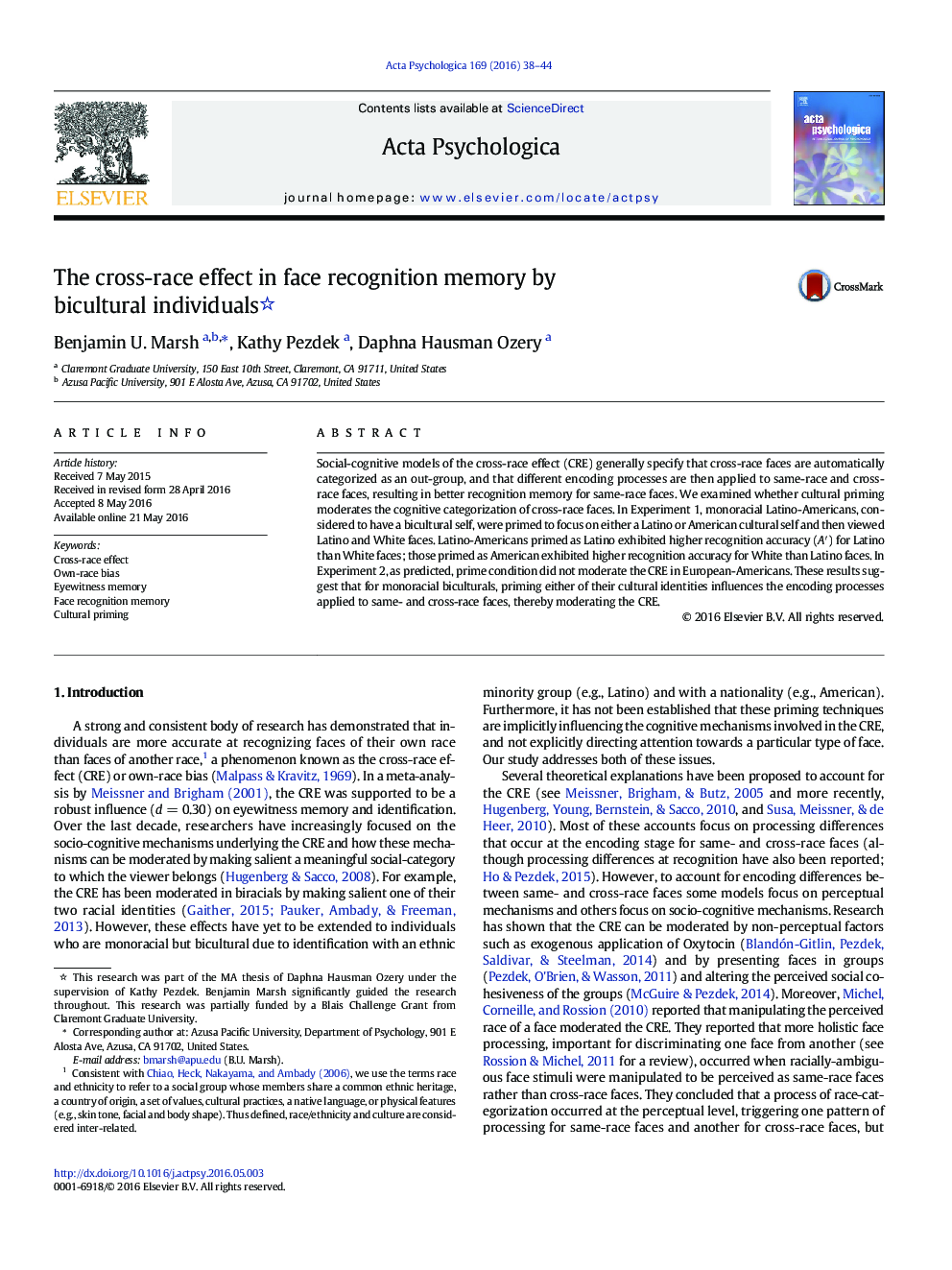| Article ID | Journal | Published Year | Pages | File Type |
|---|---|---|---|---|
| 919620 | Acta Psychologica | 2016 | 7 Pages |
•Cultural priming moderates the cognitive processing of same- and cross-race faces.•Latino Americans were primed to focus on their Latino or American cultural self.•Recognition memory was tested for Latino and White faces.•The Latino prime produced higher recognition accuracy for Latino than White faces.•The American prime produced higher recognition accuracy for White than Latino faces.
Social-cognitive models of the cross-race effect (CRE) generally specify that cross-race faces are automatically categorized as an out-group, and that different encoding processes are then applied to same-race and cross-race faces, resulting in better recognition memory for same-race faces. We examined whether cultural priming moderates the cognitive categorization of cross-race faces. In Experiment 1, monoracial Latino-Americans, considered to have a bicultural self, were primed to focus on either a Latino or American cultural self and then viewed Latino and White faces. Latino-Americans primed as Latino exhibited higher recognition accuracy (A′) for Latino than White faces; those primed as American exhibited higher recognition accuracy for White than Latino faces. In Experiment 2, as predicted, prime condition did not moderate the CRE in European-Americans. These results suggest that for monoracial biculturals, priming either of their cultural identities influences the encoding processes applied to same- and cross-race faces, thereby moderating the CRE.
